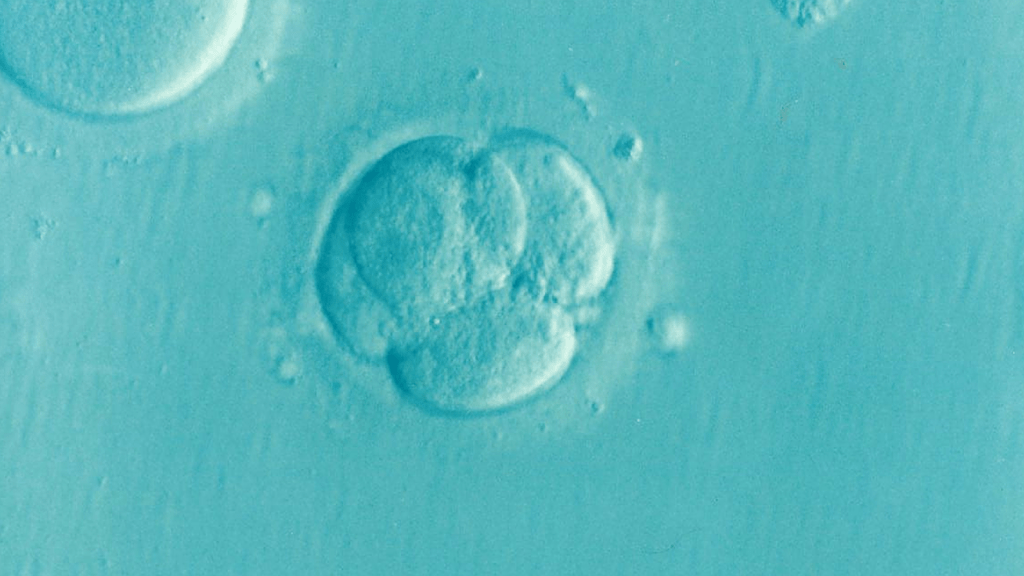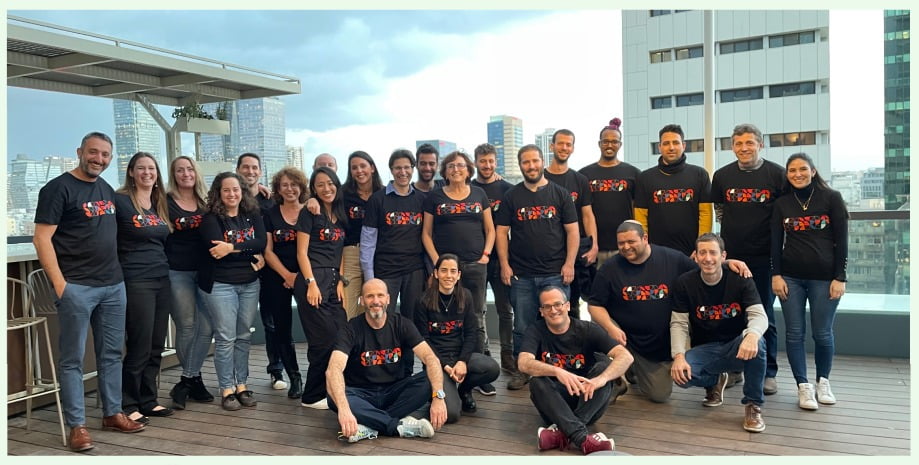As the world marks Women’s Health Month in May, infertility remains a global health issue affecting millions of women of reproductive age worldwide. Although the success rates of IVF (in-vitro fertilization) have vastly improved for women under 40 in the last decade, there is still work to be done — for all age groups.
Innovative reproductive technologies, particularly those using AI, machine learning, and other tech, continue to have a strong influence on the success of the IVF process as they make better predictions about what embryos have a higher chance of leading to pregnancy and birth. Israeli startup Fairtility takes it one step further.
The software solutions firm, founded in 2019 and, based in Tel Aviv, uses AI and computer vision algorithms to provide accurate embryo classification and implantation prediction. But it also analyzes a number of other features, which are typically undetectable even by the most experienced embryologists, to provide an even more detailed assessment.

In April, the company published the findings of a study that aimed to apply a new method of identifying embryo development potential for greater accuracy in embryo quality and improved IVF success. The results were published in Scientific Reports, a Nature Portfolio journal.
The study found that the AI algorithms developed by Fairtility outperformed human assessment as well as the existing FDA-approved system of embryo classification and selection. In addition, the AI algorithm provides accurate and transparent predictions as early as 30 hours post-fertilization.
“We really understand that in order to unveil what it is inside the what, we’re focusing on the why,” Yael Kfir, chief strategy officer at the company, tells NoCamels, “So I think the breadth of the research that we’re doing is very extensive and very unique.”
Kfir first gives an example of a woman going through the process. Let’s say the clinicians harvest about 20 eggs, 10 mature and viable eggs which are fertilized and grow in the incubator. “Then you have four or five that reach day 5 and are of very good quality. How do you choose which embryo to transfer first?” she asks. This is something that the embryologist or reproductive endocrinologist decides, she explains, and with CHLOE they can look at different biomarkers or measurable indicators of the biology. “This is subjective, the human eye doesn’t always see the little nuances or little differences,” she explains, “It’s not like, ‘Oh, I have a circle and I have a pie chart and then I can say, ‘Oh, that’s a quarter, that is a third.’ It doesn’t work like that. Being able to see these biomarkers enable you to understand them. That’s the biology that enables you to actually make educated decisions as to which embryo you want to transfer first.”

This is where AI and machine learning come in — and Fairlity’s CHLOE support tool. CHLOE stands for Cultivating Human Life through Optimal Embryos and according to Kfir, is the first and only transparent AI-based decision support tool that provides clinicians and embryologists with complete visibility into the clinical and laboratory parameters that make up the data output.
“When you talk about transparency – with CHLOE you’re able to quantify the biomarkers automatically,” In other words, it measures and quantifies biological indicators throughout the development of the embryo. “Usually the morphological [dealing with living organisms]as well as morphokinetic (refers to time-specific morphological changes during embryo development providing dynamic information on a fertilized egg) biomarkers are traditionally captured in a time consuming and very subjective manner. You have the embryologist look at it, capture it and document it. So that’s super subjective. But now we can do it faster, more accurately, and more objectively,” Kfir explains.
“In addition, and here’s where the transparency comes into play, is that we’re able to quantify the biomarkers, which would be extremely challenging to capture manually.” In essence, the IVF professional is getting more well-rounded information from something that goes beyond human capabilities.
Once you take these millions of data points and analyze them with the outcomes of these transfers, the machine can actually learn which is the best embryo to transfer, she adds.
Sign up for our free weekly newsletter
Subscribe“Now as I mentioned, some products just give you a score,” she says, “They tell you, ‘Okay, here’s the score or they rank of the embryo, but they don’t explain how you got to it. They don’t give you the biological information. And this is where we are highly differentiated.”
Instead of just providing an AI-derived score for the quality of an embryo, Fairtility also provides the biological data about each embryo. That means when a woman is going through IVF, the conversation between her and her clinician can be much more substantial. (We are going to transfer this embryo because we see that the quality is best for reasons X, Y, Z.)
Choosing the best embryo for transfer also means better chances of successful IVF treatment resulting in pregnancy to live birth faster. Having the biological data that answers the WHY also creates more trust between the AI tool and the IVF clinicians (embryologists who work in the lab with the embryos, and Reproductive endocrinologists who are the IVF specialists who work with the patients).

“We just announced that Dr. Christina Hickman has joined our company,” Kfir says, noting that Dr. Hickman, the new VP of Clinical Affairs, comes as a 20-year embryology veteran and was impressed by the company because of its transparent AI decision support tool.
“Fairtility is the only company in the IVF space that is opening up the black box of AI,” Dr. Hickman said in a statement. “I was drawn to Fairtility’s explainable AI which outlines the why of the data with biological information. Knowing the ‘why’ assists and supports IVF professionals at various decision-making junctures in the IVF process, changing the conversation between clinicians and prospective parents enduring the costly and highly emotional IVF journey. In a field where patients are so often told there is no clinical reason why a round of IVF didn’t work, Fairtility is building greater trust – trust of embryologists in the possibilities AI brings to this field, and trust between clinicians and prospective parents.”
If the embryologist sees an embryo score (based on AI prediction) without the “why” information, it is harder for them to trust the system above their own experience. Fairtility brings the “why” around the embryo quality elevating the evaluation process of embryo viability from 5 data points to 4.2 million data points.
“We are able to shine a light on this AI black box, that enables clinicians to build trust with their patients in the system,” Kfir echoes, “So it doesn’t make a decision better than you. It’s there to support you.”
Fairtility is working extensively on clinical validation with fertility clinics around the world. The company has 12 abstracts accepted for the annual European Society of Human Reproduction and Embryology (ESHRE) congress in July.
“Embryologists are longing for a solution that will bring standardization, accuracy, and greater efficiency to their significantly emotional and impactful work. In the embryology lab, we are essentially the first babysitter, carefully maintaining and protecting the potential of life at its earliest stages. We feel a sense of responsibility to our patients as they fulfill their dreams of becoming parents,” added Dr. Hickman.
Related posts

Israeli Medical Technologies That Could Change The World

Harnessing Our Own Bodies For Side Effect-Free Weight Loss

Missing Protein Could Unlock Treatment For Aggressive Lung Cancer




Facebook comments